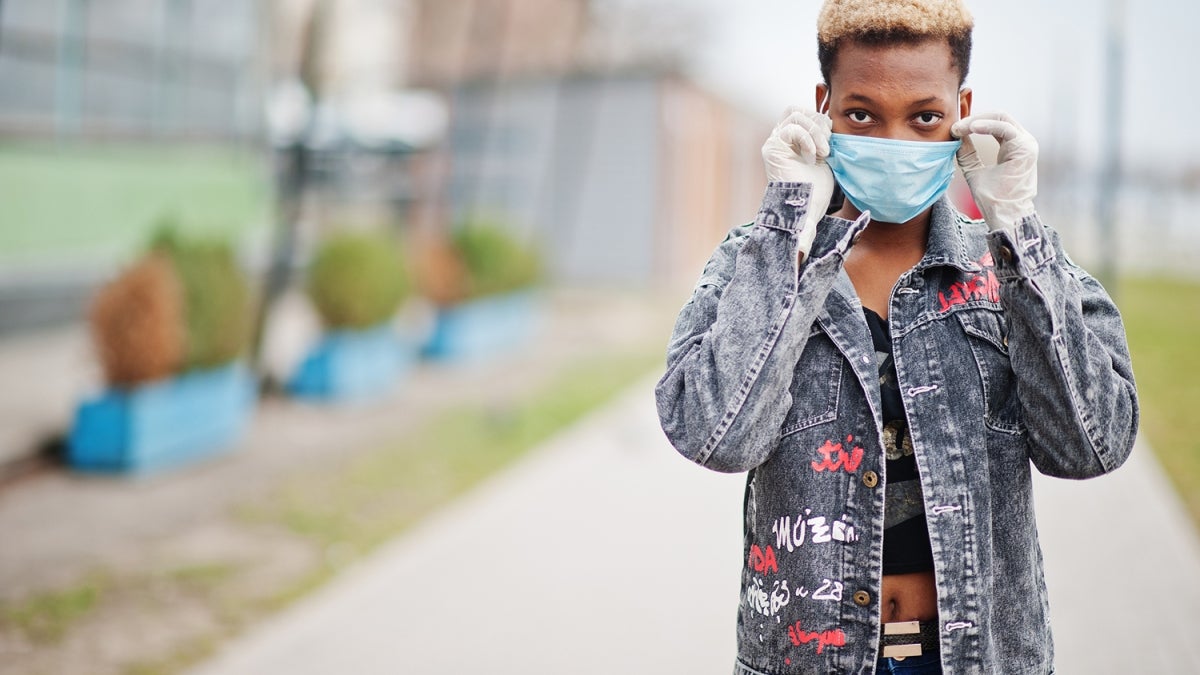African American community experiencing higher rates of COVID-19 exposure, infection and death

African American communities are negatively affected by COVID-19 more than other ethnic minority groups because of enduring systemic racism and structural inequalities that exist in the United States, says an Arizona State University professor.
Researchers are discovering that health differences between racial and ethnic groups are often due to economic and social conditions, lower access to health care and other existing heath disparities. Mako Fitts Ward, a clinical assistant professor with ASU’s School of Social Transformation and faculty lead of African and African American Studies, said all of these conditions have left the African American community especially vulnerable during the pandemic.
An educator, writer, facilitator and social justice advocate with over 15 years of experience teaching core principles of justice and social change to college students and advocating for racial and gender equity in communities around the country, ASU Now spoke to Ward about her observations on how COVID-19 has impacted the African American community.
Mako Fitts Ward
Question: News reports are stating that there’s a disproportionate amount of deaths in African American communities in large cities and rural areas. What do you account for this and what are some conditions that exacerbate the factors that put this community at higher risk?
Answer: The COVID-19 pandemic reveals longstanding racial health disparities where African Americans experience some of the highest risk factors across racial and ethnic groups. Factors that contribute to the higher death rates are the result of structural inequalities that reflect the intersection of economic, labor, housing and health conditions. These include the increased number of African Americans working in essential industries — especially black women — which increases the threat of exposure; decreased access to health facilities; higher concentrations of African Americans living in areas that are medically underserved, both urban and rural; overcrowded living conditions — e.g., from multigenerational households to criminal detention facilities; and historical mistrust of the health care systems due to conscious and unconscious racial and ethnic bias and systemic racism. All of this results in the precarity of survival for the most vulnerable communities across the U.S. during this pandemic.
Q: In a prior interview, you stated there is mistrust of the medical establishment by the African American community ever since the Tuskegee clinical studiesThe "Tuskegee Study of Untreated Syphilis in the Negro Male" was a 40-year clinical study that took place between 1932 and 1972 by the United States Public Health Service. It followed the medical journeys of 600 rural African American males in Alabama with syphilis, but doctors refused to tell patients or treat them in order to gauge long-term effects of syphilis. The deception led to an erosion of trust in the medical community by African American males, which continues to this day. were exposed in the early 1970s. Is that having an impact now?
A: The "Tuskegee effect" speaks to a sociological concern about how African Americans respond to and engage with the medical system based on legacies of race-based harm. I think we won’t know the full impact of COVID-19 infections and treatments until we have the necessary qualitative data on African American experiences during this time. Recommended guidelines from state and federal health agencies on preventing cultural bias in health care are necessary and important. Further data on the experiences of African Americans navigating these systems over the past five months will provide more accurate information to fully understand the impact.
Q: Are elected officials doing enough to draw attention to or address these inequities?
A: Politicians on all levels are naming the disproportionate death rates, from Congressional letters and gubernatorial press briefings to the Joe Biden presidential campaign releasing its plan to address African American communities. However, addressing structural inequalities requires long-term planning and strategic efforts that are much greater than media soundbites and social media posts can convey. Organizations like the African American Policy Forum, Color of Change and Black Women Organized for Political Action, along with data monitoring projects like the COVID Racial Data Tracker provide a model for what coalitions across research, policy and advocacy efforts should look like. These efforts can incite the necessary pressure on lawmakers to address structural racism at its root.
Top photo: Courtesy of iStock/Getty Images
More Health and medicine

College of Health Solutions alumnus named Military Medic of the Year
By Keri Hensley and Kimberly LinnJonathan Lu has looked out for the health of his fellow military service members his whole career, starting with his role as a combat medic in the U.S. Army.Driven by…

ASU, Mayo Clinic forge new health innovation program
Arizona State University is on a mission to drive innovations that will help people lead healthier lives and empower health care professionals to develop novel new health solutions. As part of that…

Innovative, fast-moving ventures emerge from Mayo Clinic and ASU summer residency program
By Georgann YaraIn a batting cage transformed into a custom pitching lab, tricked out with the latest in sports technology, Charles Leddon and his Mayo Clinic research teammates scrutinize the…
